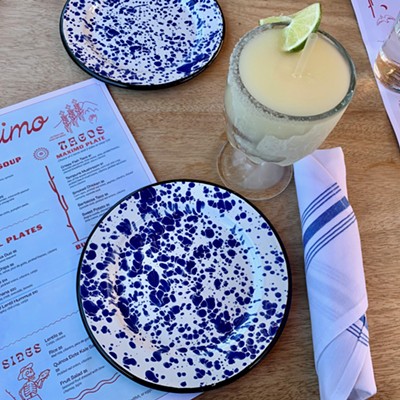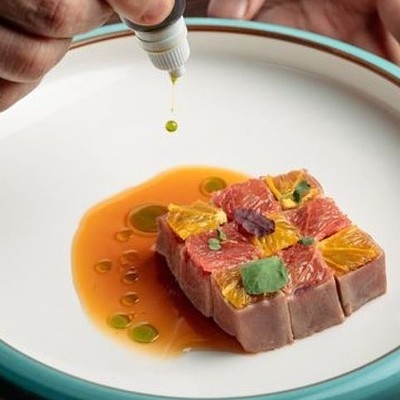Last week, the Houston Food Bank and IKEA Houston joined forces to put on a dinner to remind people what it’s really like to survive on a low income. Attendees randomly received tickets that corresponded to a financial position: wealth, middle class and poverty.
I initially drew middle class and got to sit in a real chair at a real table and enjoy rice and black beans served family-style. That was a luxury compared to the “poor,” who sat on the floor on straw mats with wooden pallets for low tables. They didn’t get beans, and had to get up and stand in line to receive their bowl of rice.
Middle class is defined as the group with an income ranging between $24,000 and $75,000 — quite a wide range — while the poor were defined as those earning less than $24,000 a year. More than 66,000 people in southeast Texas fall into this category and are at risk of not having regular access to food. That’s 19 percent of the population. Five thousand of those people are children.
The “wealthy” in the group were treated to white tablecloths, wine, pasta and green vegetables. In Houston, the well-to-do (about 33 percent of the population with an income of $75,000 or more per year) get to dine out at least three times a week.
As the minutes passed, the more deeply personal the experience became. The rice and beans were pretty good, but as I made my way through the bowl, spoonful by spoonful, I found myself transported to a different time. There was a sudden feeling of guilt and scarcity. I wondered if I’d taken too big of a portion. I became more mindful of enjoying every bite, as if it could be my last for a while, even though I logically knew I'd be going back to my normal life soon.
Emcee Lily Jang from KHOU “invited” some of us to take our places at the low-income side of the room. Sitting on straw mats when you’re a young person is no big deal. When you’re over 40, you realize that’s not nearly as comfortable as it used to be (especially when you thoughtlessly wore a skirt that day).
Jang related a story to drive home how easily even an educated, working person can suddenly find himself “demoted” in real life.
“Jesus Perez just got laid off from his job as a stationary engineer in the Medical Center. He worked there for six years. He lives alone in a house in the East End and explains that paying for it has been getting harder and harder. Jesus admitted, he never thought he would need help because he had a degree.”
Other guests got to move up or down in their new scenarios. Wealthy became middle class. One attendee in the poor section caught a break and also moved to middle class.
I’ve been on every side of the equation. When I was a young mom with an impending divorce and small children, I was very poor and needed help more than once. I was a legal secretary. Before that, I was a retail manager. Getting back into college and going into graphic design (and later IT work) was what helped me get out of the big hole I’d dug for myself.
Twice I ended up at a food pantry and once I was a WIC (Women, Infants, and Children) recipient. Donated food meant I could put my limited financial resources toward something else, like rent or the light bill. The food was actually pretty good. It challenged me as a cook because I didn’t know what I was going to end up with. What I missed most of all was fresh produce: lettuce, tomatoes, onions, broccoli, asparagus. At least with WIC, we received vouchers for fresh dairy items, like milk and cheese. It's a problem that the Houston Food Bank has surmounted. Brian Greene, Houston Food Bank president, says that these days, 40 percent of the food distributed is fresh produce.
Life changed. Life improved. I remarried and in time, my husband and I advanced in our careers, acquired cars that didn't need work every weekend to keep them running, and no longer needed help. We saved money, bought a house and could afford to live.
These days, I’m a fancy food writer. It might be because of my early experiences that I have a greater appreciation for food than most. With the never-ending reviews, media events and other restaurant visits, there are more calories available to me than is right and good to consume.
In that context, a bowl of rice and beans seemed like a refreshing, light meal. However, I remembered all too clearly in that moment crying over a big pot of pasta sauce that, exhausted from work and child-rearing, I’d forgotten to put away in the fridge. It was several days’ worth of meals lost. It was a disaster.
The other diners who had actually bought tickets to the event were invited to get a real dinner from the buffet. As for me, I went home with prayers of gratitude that these days I have options.
The most important takeaways from Houston Food Bank events such as this one are these. First, most people are only one step away from poverty and hunger. It takes nearly nothing to plunge someone into a difficult situation: divorce, layoff, injury or a death in the family. Poverty can happen to anyone, and sometimes all a person needs is a little boost. There’s always a way out of the hole, but those who are better off need to occasionally throw down a rope.





